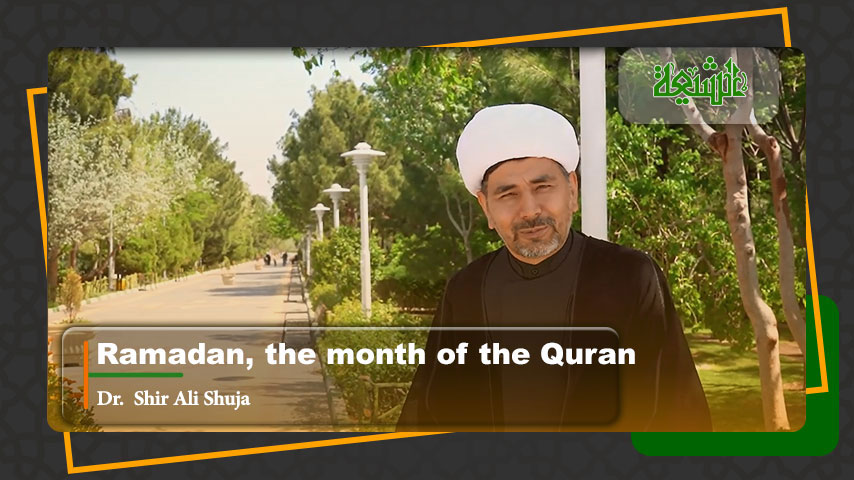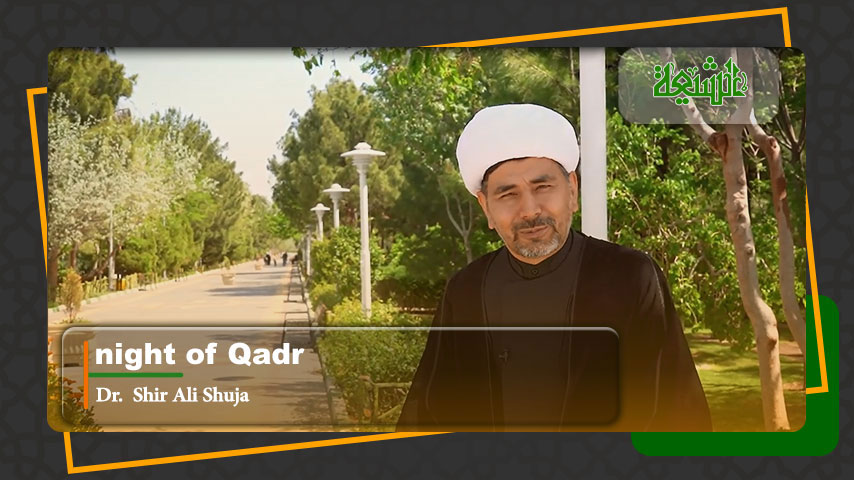In this part of the article titled “Shia and the Qur’an”, we shall focus on the outward and inward aspects of the Qur’an as believed by the Shias.
The Outward and Inward Aspects of the Quran
It has been explained that the Holy Quran elucidates religious aims through its own words and gives commands to mankind in matters of doctrine and action. However, the meaning of the Quran is not limited to this level. Rather, behind these same expressions and within these same meanings, there are deeper and wider levels of meaning that only the spiritual elite who possess pure hearts can comprehend. The Prophet, who is the divinely appointed teacher of the Quran, says: “The Quran has a beautiful exterior and a profound interior”. He has also said, “The Quran has an inner dimension, and that inner dimension has an inner dimension up to seven numerous references to the inner aspect of the Quran”.
The main support of these assertions is a symbol which God has mentioned (1). In this verse divine gifts are symbolized by rain that falls from heaven and upon which depends on the life of the earth and its inhabitants. With the coming of the rain, floods begin to flow and each river bed accepts a certain amount of the flood, depending on its capacity. As it flows, the flood is covered with foam, but beneath the foam, there is that same water which is life-giving and beneficial to mankind. As is indicated by this symbolic story, the capacity for comprehension of divine sciences, which are the source of man’s inner life, differs among people.
There are those for whom there is no reality beyond physical existence and the material life of this world which lasts but a few days. Such people are attached to material appetites and physical desires alone and fear nothing but the loss of material benefits and sensory enjoyment. Such people, taking into consideration the differences of degree among them, can at best accept the divine sciences on the level of believing in a summary fashion in the doctrines and performing the practical commands of Islam in a purely outward manner without any comprehension. They worship God with the hope of recompense or fear of punishment in the next world. There are also those who, because of the purity of their nature, do not consider their well-being to lie in attachment to the transient pleasures of the fleeting life of this world.
The losses and gains and bitter and sweet experiences of this world are for them no more than an attractive illusion. The memory of those who passed before them in the caravan of existence, who were pleasure-seekers yesterday and no more than subjects of stories today, is a warning that is continuously present before their eyes. Such men who possess pure hearts are naturally attracted to the world of eternity. They view the different phenomena of this passing world as symbols and portents of the higher world, not as persisting and independent realities.
It is at this point that through earthly and heavenly signs, signs upon the horizons and within the souls of men, they “observe” in a spiritual vision the Infinite Light of the Majesty and Glory of God. Their hearts become completely enamoured with the longing to reach an understanding of the secret symbols of creation. Instead of being imprisoned in the dark and narrow well of personal gain and selfishness, they begin to fly in the unlimited space of the world of eternity and advance ever onward toward the zenith of the spiritual world. When they hear that God has forbidden the worship of idols, which outwardly means bowing down before an idol, they understand this command to mean that they should not obey other than God, for to obey means to bow down before someone and to serve him. Beyond that meaning they understand that they should not have hope of fear of other than God; beyond that, they should not surrender to the demands of their selfish appetites; and beyond that, they should not concentrate on anything except God, May His Name be Glorified.
Likewise when they hear from the Quran that they should pray, the external meaning of which is to perform the particular rites of prayers, through its inner meaning they comprehend that they must worship and obey God with all their hearts and souls. Beyond that, they comprehend that before God they must consider themselves as nothing, must forget themselves and remember only God. It can be seen that the inner meaning present in these two examples is not due to the outward expression of the command and prohibition in question. Yet the comprehension of this meaning is unavoidable for anyone who has begun to meditate upon a more universal order and has preferred to gain a vision of the universe of reality rather than his own ego, who has preferred objectivity to an egocentric subjectivism.
From this discussion, the meaning of the outward and inward aspects of the Quran has become clear. It has also become evident that the inner meaning of the Quran does not eradicate or invalidate its outward meaning. Rather, it is like the soul which gives life to the body. Islam, which is a universal and eternal religion and places the greatest emphasis upon the” reformation” of mankind, can never dispense with its external laws which are for the benefit of society, nor with its simple doctrines which are the guardians and preservers of these laws.
How can a society, on the pretence that religion is only a matter of the heart, that man’s heart should be pure and that there is no value to actions, live in disorder and yet attain happiness? How can impure deeds and words cause the cultivation of a pure heart? Or how can impure words emanate from a pure heart? God says in His Book,
“Vile women are for vile men and vile men for vile women. Good women are for good men, and good men for good women.” (2)
He also says,
“As for the good land, its vegetation cometh forth by permission of its Lord; while as for that which is bad, only evil cometh forth) from it” (3).
Thus it becomes evident that the Holy Quran has an outward and an inward aspect and the inward aspect itself has different levels of meaning. The hadith literature, which explains the content of the Quran, also contains these various aspects.
NOTES:
_____________________________________________________
1. The Holy Quran 13: 71
2. The holy Quran, 24: 62
3. The Holy Quran, 7: 85.
















